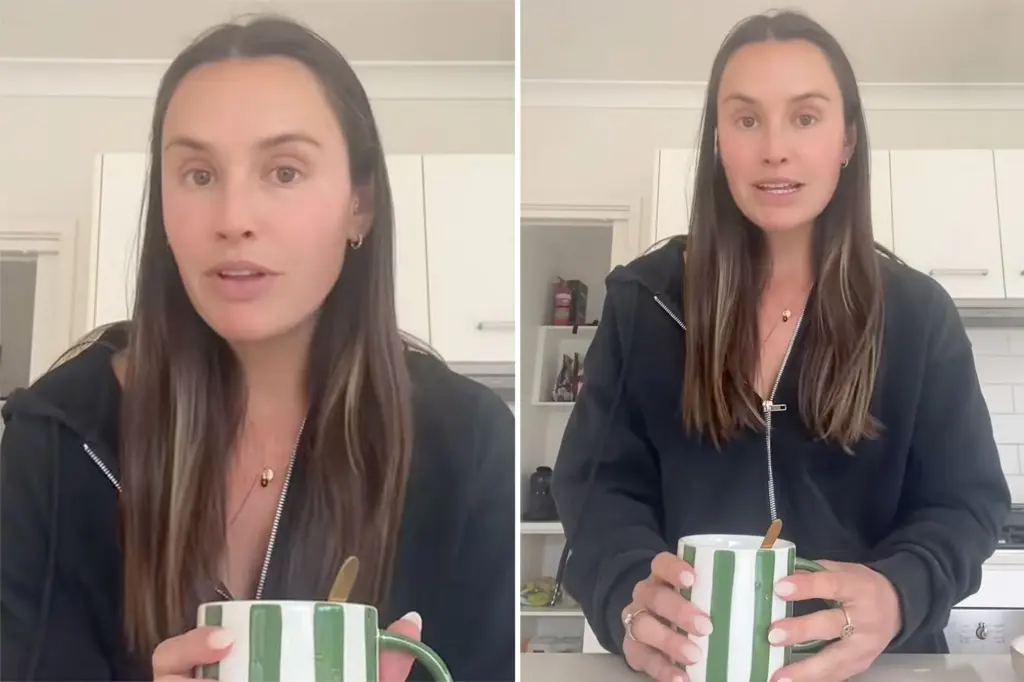The Silent Divide: Motherhood, Friendship, and Unsolicited Updates
In a candid TikTok confession that resonated with mothers everywhere, Nicola (@nicolavarlamos_) revealed a painful truth about her post-motherhood social life: “This might honestly be a little sad to admit, but I stopped updating people on my kids if they didn’t ask.” This simple statement opened a window into the complex reality many mothers face—a shrinking social circle that reflects the seismic shift motherhood brings to friendships. Nicola’s story isn’t unique; it’s emblematic of a larger pattern where women find themselves isolated after becoming mothers, with pre-baby friendships often fading into polite distance or disappearing entirely. Her experience highlights how motherhood can create an unexpected divide between a woman’s past and present lives, leaving many to wonder: is this isolation inevitable, or is there a better way to bridge these worlds?
The transformation began after Nicola had her first daughter. She noticed a troubling pattern—the friends who had been constants in her pre-motherhood life were suddenly silent. “Pretty much nobody checked in on me and my kids after I had my first daughter,” she explained, the hurt evident in her voice despite her matter-of-fact delivery. This absence of interest became a turning point. Nicola made a conscious decision to stop sending unsolicited updates or photos of her children, no longer sharing the little milestones and moments that filled her days with joy. The result was predictable but still painful: “What happened? The friendship pretty much stopped.” This outcome confirms what many mothers suspect—without their initiative, certain friendships simply cannot survive the transition to parenthood. It raises questions about the nature of these relationships to begin with and whether they were built to withstand major life changes.
What makes Nicola’s perspective particularly nuanced is her self-awareness about the asymmetry of interest that often exists between parents and non-parents. “I’m obviously obsessed with my kids, and I’m obsessed with my family. But, just because I’m obsessed with them and I want to send updates doesn’t mean other people are interested,” she acknowledged. Her decision wasn’t made from resentment but from a place of protecting her emotional energy and her children’s stories from indifferent audiences. “If they’re not interested, or asking, or reaching out, I’m not going to send them an update. I feel like they don’t deserve it.” This boundary-setting is both a form of self-preservation and a recognition of reality—her children’s milestones aren’t universal currency, and sharing them requires a receptive audience. By withholding these updates from those who don’t explicitly express interest, Nicola reframes her approach to friendship in a way that honors her new identity as a mother without demanding that others change their priorities.
The response to Nicola’s video created a virtual support group of mothers nodding in recognition. “Really find your real friends once you have kids,” one commenter observed, capturing the sentiment that motherhood becomes an unintended test of friendship depth. Another pointed to the imbalance of effort: “Every time I see family in person, they ask me to send updates, but why can’t they text and ask for them?! The burden is always on the mum and that’s not ok!” These comments reflect a common frustration among mothers who feel they’re expected to maintain relationships single-handedly while navigating the all-consuming demands of raising children. This collective experience suggests a cultural failure to acknowledge how drastically parenthood changes a person’s available time, energy, and priorities—and how friendship rituals might need to evolve in response.
However, other voices in the comments offered a counterbalance, suggesting that friendship’s natural reciprocity doesn’t disappear when babies arrive. “I think this speaks to the quality of your friendships. Real friends don’t stop reaching out once you have a baby, and it goes the other way, too. Effort needs to be made on both ends,” one person wrote, gently challenging the idea that childless friends bear all responsibility for maintaining connection. Another comment addressed the reality gap that can exist between parents and non-parents: “I find it unfair and weird when mums expect people that aren’t mums yet, to just get it! Sorry, but your lives are on completely different wavelengths.” This perspective acknowledges that non-parents may struggle to relate to the all-encompassing nature of parenthood, just as new mothers might forget what it feels like to have the freedom and focus their childless friends maintain. A third commenter cut to the heart of the matter: “I think it’s important to remember it goes both ways, too. Do you reach out and ask how your friends are doing? Do you show interest in their lives?” This question invites reflection on whether mothers sometimes withdraw into their new role, unintentionally signaling to friends that their non-child-related lives are no longer of interest.
Nicola’s story, with all its emotional complexity, speaks to a fundamental human need for connection that doesn’t disappear when we become parents—though it certainly transforms. The mixed reactions to her video demonstrate that there’s no single right approach to maintaining friendships through life transitions as significant as parenthood. Some friendships naturally fade, others require renegotiation, and new ones form with people who understand our current reality. What remains universal is the desire to be seen and valued in all our roles—not just as mothers, but as the full, complex humans we continue to be. Perhaps the most healing path forward lies in honest conversations where both parents and non-parents can express their needs and limitations, creating new forms of connection that honor everyone’s changed circumstances. After all, the goal isn’t to maintain friendships exactly as they were before children, but to nurture relationships that can evolve alongside us through life’s most transformative journeys.














